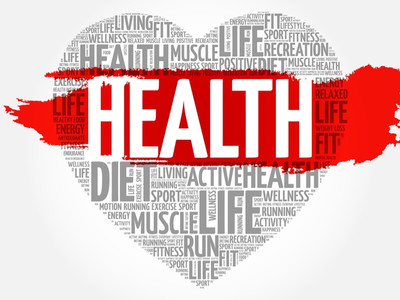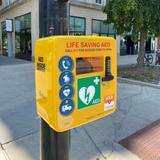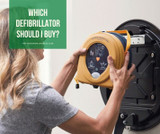Who is at risk from a cardiac arrest?
Sudden cardiac arrests (SCA) occur when the hearts natural rhythm stops beating at it’s normal pace and a heartbeat becomes irregular. This results in the blood flow to the brain being stopped as well as other vital organs, a SCA usually results in death unless life saving care is delivered within minutes.
There are often misconceptions between a heart attack and a SCA. An easy way to remember the difference is that a heart attack is caused by something blocking the arteries and is usually linked to diet whereas a SCA is down to the electrical rhythm in your heart and is mostly undetectable and cannot be predicated. When a victim suffers from a SCA, their irregular heartbeat known as arrhythmias cause the heart to either beat too fast, too slow or irregularly.
In order to save a persons life who has fallen ill due to a SCA, a defibrillator must be used within the first few minutes in order to shock the heart and help restore it to it’s natural rhythm. If a defibrillator is not administered as quickly as possible, SCA are mostly fatal.
As SCA’s are undetectable and occur out of the blue, it can be very hard to determine who may be at a high risk of falling ill due and suffering from one. SCA’s are not more common in any one race when compared to another and can affect anyone whether they are an infant or an adult.
Statistics do show however, that men are more likely to suffer a SCA than women, as you get older your chances can increase and studies have shown that those with underlying conditions such as heart failure, high blood pressure and diabetes may be more likely to suffer a SCA.
As a general rule however, SCA’s strike so quickly, meaning it is very hard to know when and if someone will suffer a SCA as people who appear very fit and healthy can fall ill in a matter of seconds with any underlying problems going unnoticed for years.
There are ways of prevention however if you are concerned that you may have a higher risk of falling ill. If you have previously survived a SCA, you are at a high risk of having another cardiac arrest meaning you have an implantable cardioverter defibrillator (ICD) placed under your skin to monitor your heartbeat.
If you have severe ischemic heart disease, you are also at risk of suffering from a SCA. If this is the case, your doctor may be able to prescribe you a beta blocker to help reduce your risk. Prescriptions to help with low blood pressure, blood clots and relieving the hearts workload may also prescribed.
For those who have no known risk factors related to SCA’s, adopting a healthy lifestyle such as eating healthily, managing stress and quitting smoking are great ways to keep as healthy and possible which will ultimately reduce the chance of suffering from a SCA.
If you do ever see someone suffering a SCA, it is important to remember to always raise the alarm first by calling for help and ringing 999. Then begin CPR and always use a defibrillator if one is nearby. Continue this cycle until the emergency services arrive and you could have helped save a life.
Recent Posts
-
Empowering Communities: The Lifesaving Impact of CPR on Restart a Heart Day
Every year, on and around October 16th, an important event takes place - Restart a Heart Day. This a …16th Oct 2023 -
Which home defibrillator?
80% of all out of hospital cardiac arrests occur at home. Defibrillators are often available in loca …4th Dec 2022 -
Which defibrillator should I buy?
There are many defibrillators available on the market and it can become overwhelming knowing which o …4th Nov 2022




